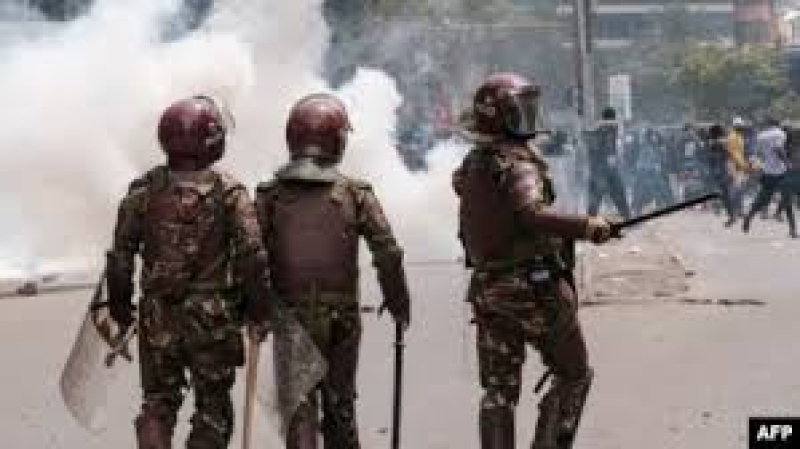- Nation Votes Tomorrow in 13th Poll, Referendum |
- Key in your hands, use it wisely: Prof Yunus tells voters |
- Yunus Urges Voters to Shape a ‘New Bangladesh’ |
- Bangladesh Polls: Campaign Ends as Voters Weigh Pledges |
- Bangladesh Heads to First Gen Z-Driven Competitive Poll |
Kenya braces as new protests erupt against tax hikes

A fresh round of protests returned to Nairobi, Kenya's capital, and other locations around the country Tuesday, following last week's deadly demonstrations against a finance bill that included tax hikes to pay off the country's enormous debt.
The Kenya National Commission on Human Rights said on Monday that 24 people have been killed since the demonstrations began two weeks ago and 361 have been injured. The commission described the violence used against protesters as "excessive and disproportionate."
President William Ruto, who on Sunday put the death toll at 19, is facing his most serious crisis since taking office in 2022.
The Parliament passed the finance bill last week amid the protests, which turned deadly when protesters broke into the parliament building in Nairobi and police opened fire, killing more than 20 people, according to rights groups, reports VOA.
In the wake of the violence, Ruto said he would not sign the finance bill and called for an inquiry into the deaths of the demonstrators. But those moves have apparently not appeased the young activists, who are calling for the president to step down.
"We are determined to push for the president's resignation," Ojango Omondi, an activist in Nairobi, told Reuters on Tuesday. "We hope for a peaceful protest and minimal casualties, if any."The leaderless demonstrations have been fueled by tech-savvy youth on social media.
Scattered violence was reported Tuesday as protests were also held in Kisumu, Nakuru, Kajiado, Mombasa, Migori, Mlolongo and Rongo, prompting one prominent activist to encourage his fellow protesters to go home because of government interference.
Several vehicles were reported to have been torched in Mombasa.
"Good people. Let's go home. As usual the government has let goons take over, loot, and burn property again," Boniface Mwangi wrote on X.
Some shop owners in Nairobi shuttered their businesses Tuesday because they feared the violent protests.
"This is economic sabotage," John Kwenya, a member of the Nairobi city county assembly, told AFP.
Interior Minister Kithure Kindiki warned that the government would take action against anyone participating in the "orgy of violence" and "anarchic chaos and cruel plunder."
Meanwhile, at Nairobi's public morgue, families are collecting the remains of their loved ones from last week's demonstrations in the capital.
VOA's Nairobi Bureau Chief Mariama Diallo talked with Hussein Khaled, CEO of Vocal Africa, an organization of community activists, who described the morgue as "a beehive of activities."
He said his organization is there to support the families whose family members were shot and killed by the police during the protests.
"We make sure we have the necessary documentation that will help us in seeking justice," Khaled said.
Diallo also talked with an activist who with other people has set up an account through M-Changa, a mobile contribution platform to help offset some of the protesters' medical and funeral expenses. The goal was 10 million Kenya shillings, but they have surpassed that and are now at more than 25 million, equivalent to about $193,000.
Some family members, like Phoebe Akumu Maina, who lost her 17-year-old son last week, said they have little to no resources to bury their kin.
"I don't have money, I have nothing. I am only just a mother. … I don't have a husband. My husband died. … If they can help me move the body to the cemetery, it would be good."

